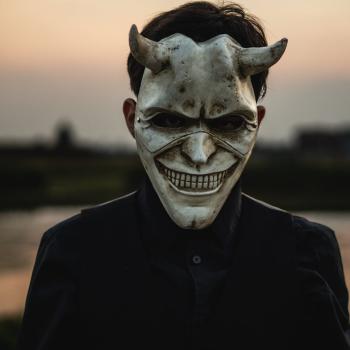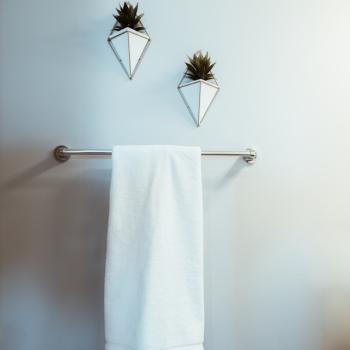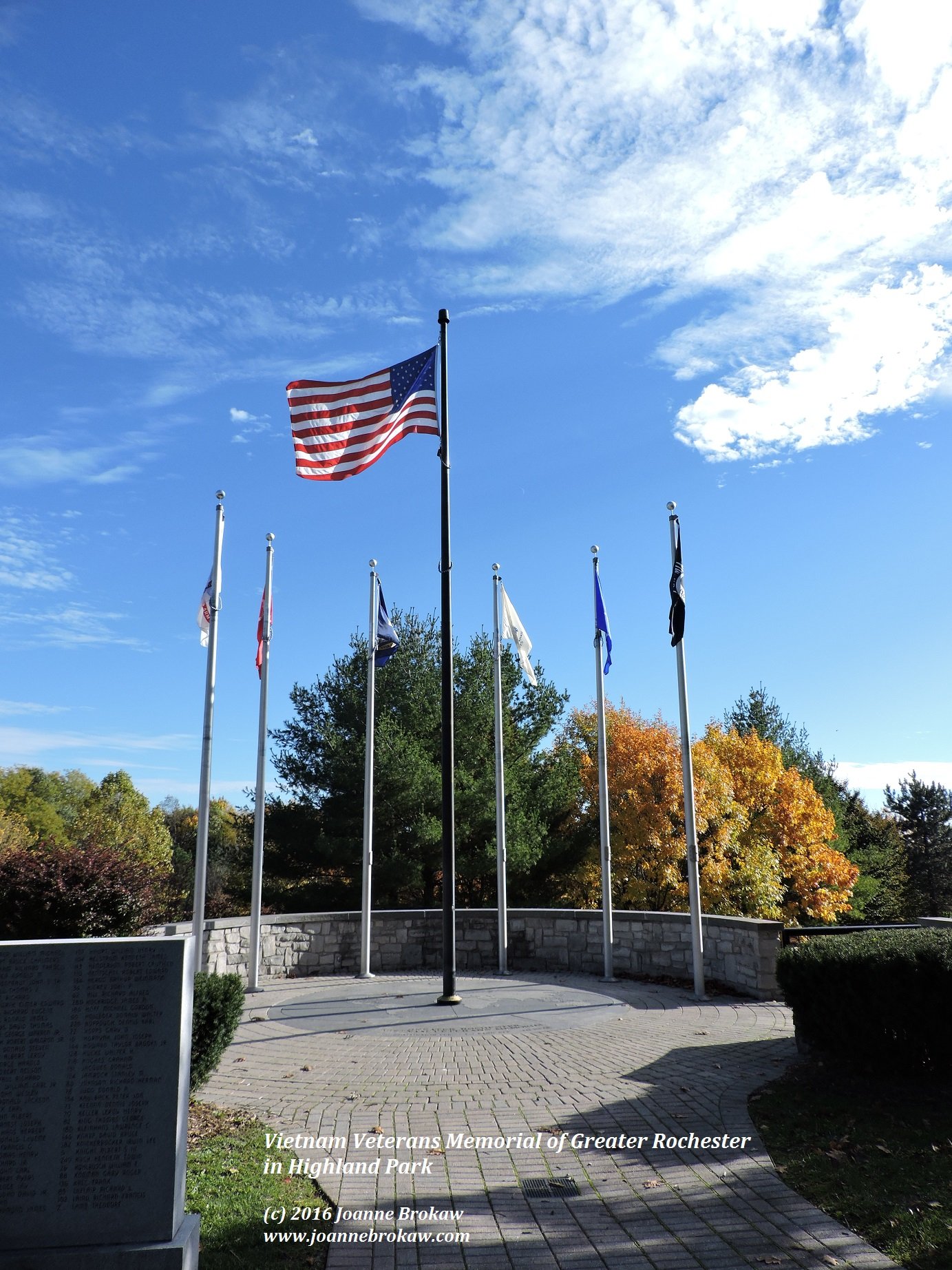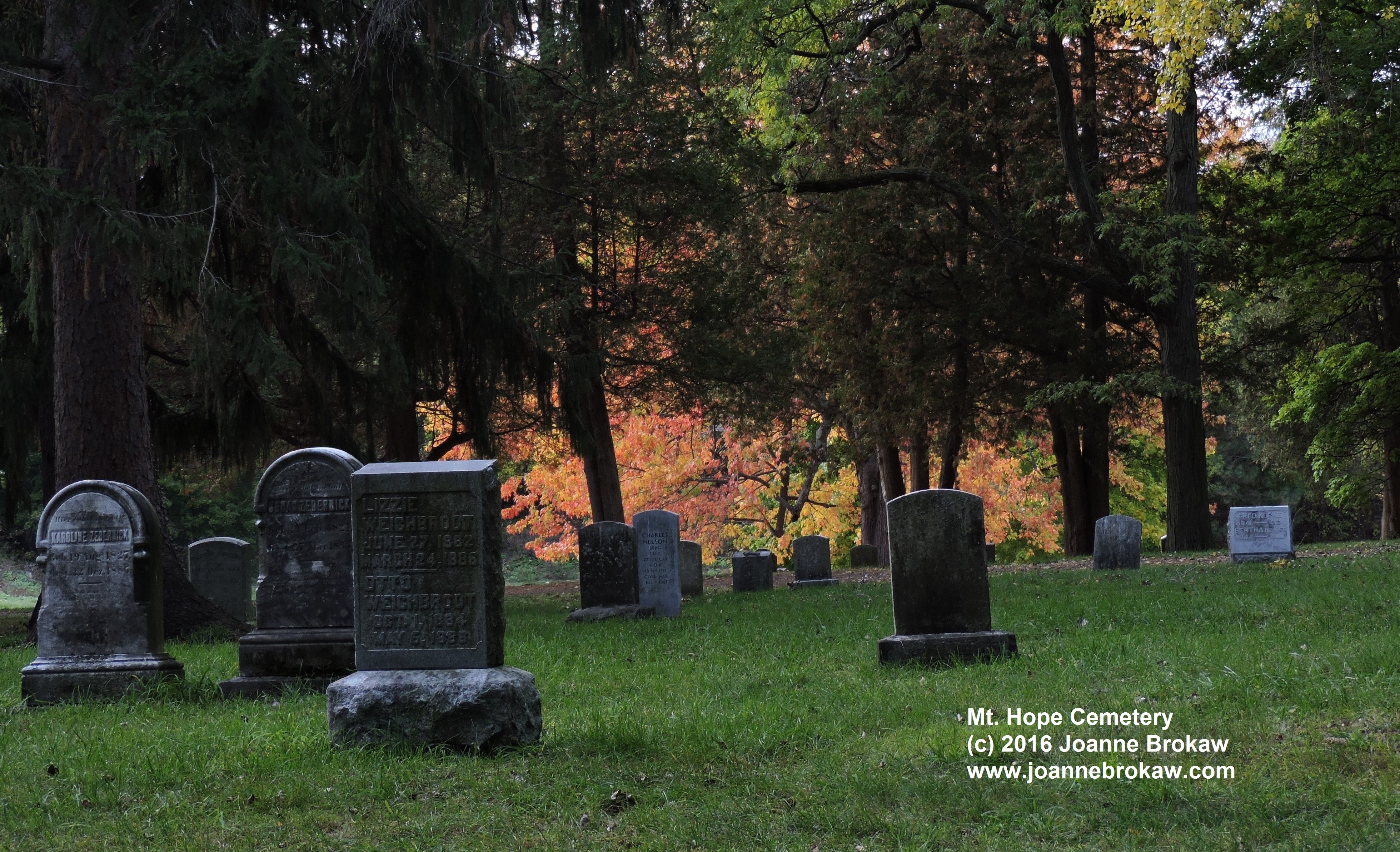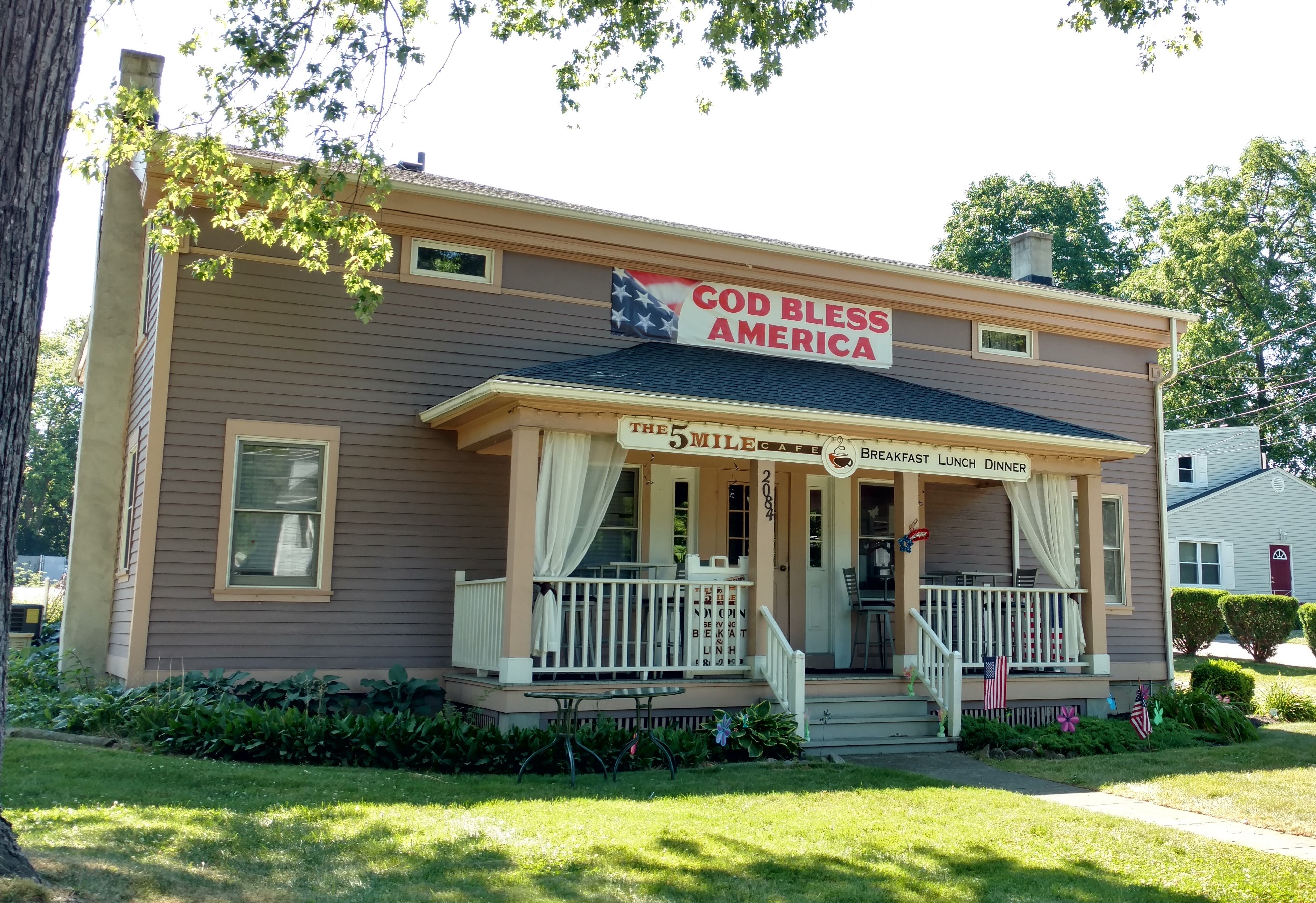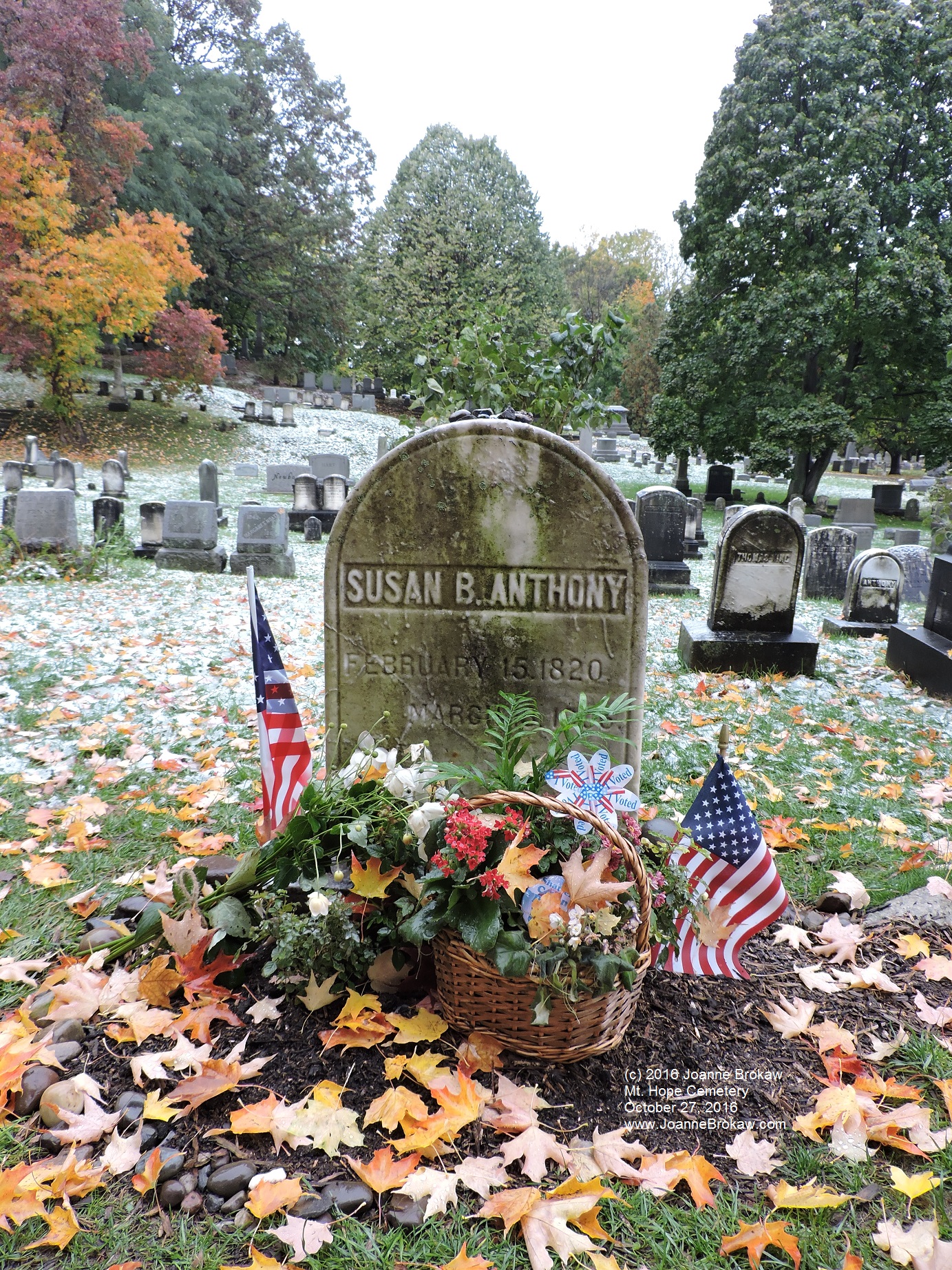
There are just a few days until Election Day and I have to confess that I’m conflicted about what I’m going to do when I get to the ballot box. I’ve been supporting a third party candidate the entire season, but I’m also aware that this could be an historic election. Do I want to use my vote to help put the first woman in the Oval Office?
So I’m asking myself: What would Susan B. Anthony do?
As I’m working on my book about people buried at Mt. Hope Cemetery, I’ve been putting off writing about the famous abolitionist and suffragette. It’s a big story and I’m not sure how to pare it down, how to decide what angle I want to focus on.
I’ve decided that I’m going to visit her grave on Election Day, and start the story there.
Traditionally, on Election Day, people visit Susan B. Anthony’s grave and leave mementos, especially “I voted” stickers. (Side note: the folks at Mt. Hope Cemetery are begging people to NOT put stickers on her headstone. The gum and adhesive damages the fragile stone. My suggestion: be more creative with your token of affection.)
This year, public gatherings are already in the works for Tuesday as groups of people plan to trek to the Anthony grave site and pay their respects to the woman who fought tirelessly for women’s rights.
I suspect that a lot of women will be celebrating the opportunity to vote for the candidate who may actually become the first female President of the United States.
And here’s where I’m conflicted.
The rational part of me wants to vote for the candidate who best represents my views, and that’s not Hillary Clinton. I appreciate and respect her as an accomplished woman, but politically, we’re just not on the same page.
At the same time, to say I had the chance to vote for the first female president of the U.S. and I didn’t take it? Is that what I want to tell my grandchildren?
For what it’s worth, part of my decision hinges on the fact that Hillary Clinton isn’t the first woman to run for President of the United States. She is the first from one of the two major political parties, but others have already blazed that trail as third party candidates, making Clinton’s current position on top of the ticket a culmination of the work of women who came before her.
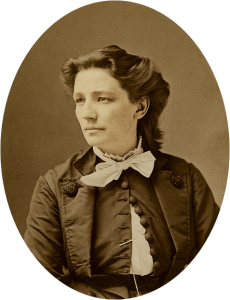
The first woman to run for president was actually Victoria Woodhull, in 1872, 50 years before women even won the right to vote. Woodhull was the candidate for the Equal Rights Party. She was 34 years old, too young to even serve as president if she’d miraculously won. But her goal wasn’t to win; it was to send a message to Washington.
(As a side note, the Equal Rights party selected Frederick Douglass as Woodhull’s running mate, although he never accepted or even acknowledged the nomination.)
Coincidentally, 1872 was also the year the Susan B. Anthony was arrested for voting in Rochester, NY. In making such a public stand for the cause, for whom did she cast her ballot?
Ulysses S. Grant. Not Victoria Woodhull.
Susan B. Anthony’s message was not about girl power; it was about equality. Equality for women to have a say in the running of their own lives, to serve on juries or testify on their own behalf in court. To own property; to leave a marriage and take her children. To work, to serve, to participate in the community and government as equals with men.
I honestly don’t believe that the support for Hillary Clinton is only about voting for a woman, just because she’s a woman. If that were the case, we would have had a female president in 1976 or 1980, when Ellen McCormack ran on the Right To Life Party ticket; in 2008 when Cynthia McKinney was the Green Party candidate; in 2012 when Jill Stein headed the Green Party ticket.
In fact, if you want a woman in the Oval Office, Stein is running on the Green Party ticket again this year.
If it was all about gender, at the very least Geraldine Ferraro would have been our first female Vice President in 1984, or Sarah Palin would have won that office in the last election.
I think that modern women vote on the issues, the same way Susan B. did. We take that right seriously, and like our sister suffragettes before us, we consider the needs of ourselves, our communities, and our families before we figuratively pull the ballot lever.
We are women, and yes, we roar. Perhaps not always on the same political ticket, but with the same voice that reminds the world that we are grateful for those women who sacrificed for our right to do so.
To be honest, I don’t know who Susan B. Anthony would vote for on Tuesday. But whatever happens on Election Day, I think she would be proud if you considered the issues and voted – for the highest office in the land, and also in your local elections; that’s where much of the political work is really done. If you do that, to paraphrase Ms. Anthony, failure will be impossible.
You can keep up to date with my upcoming book on my website, and see pictures from the cemetery daily during November on my Facebook Page.



